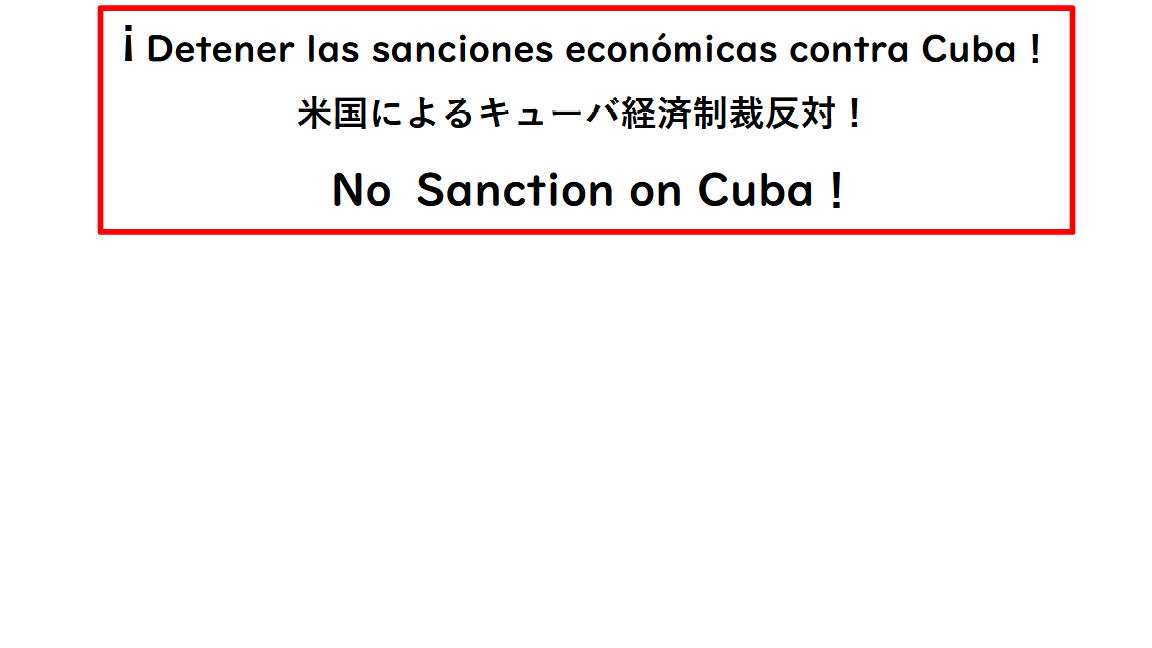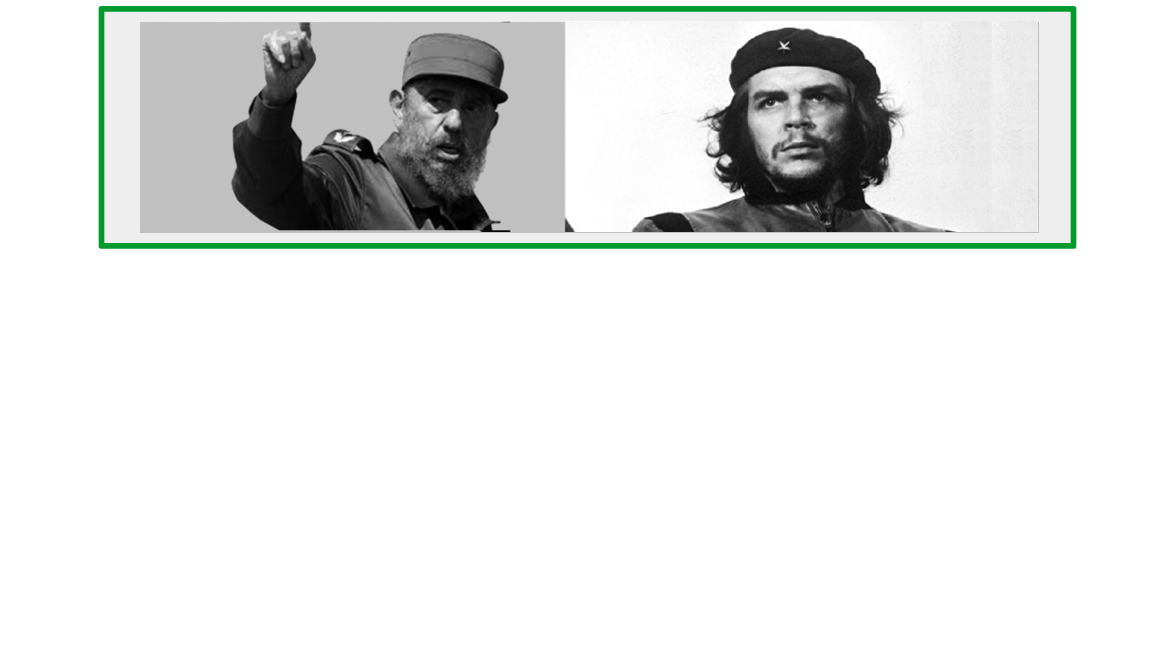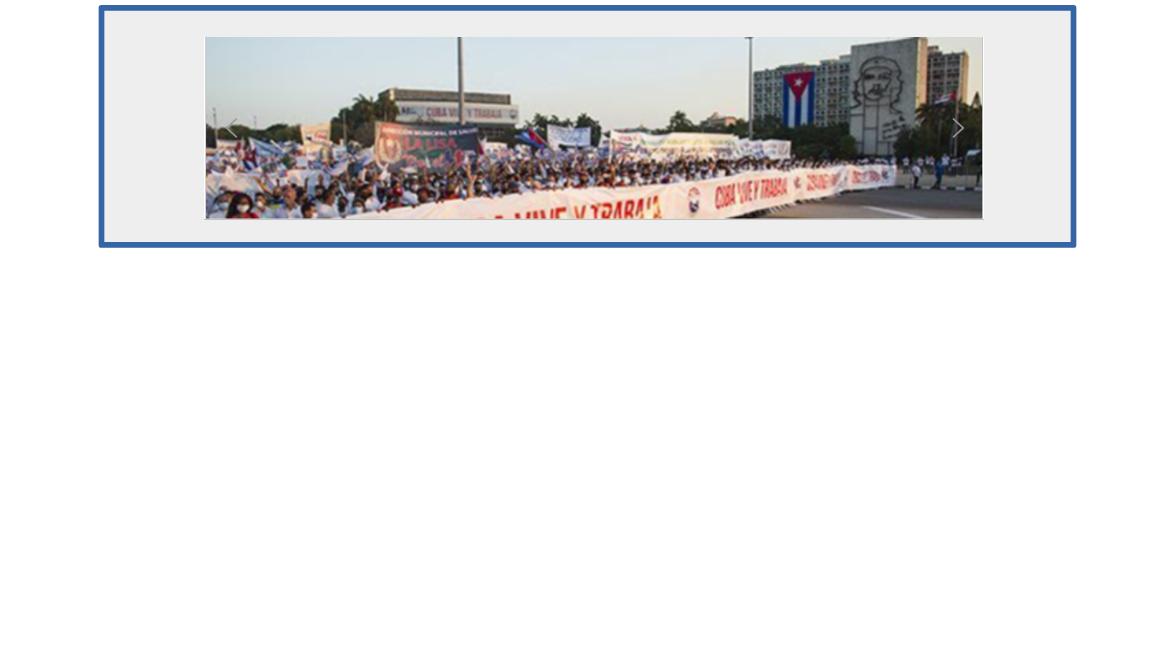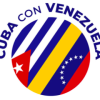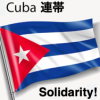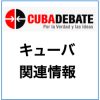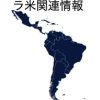「ヘンリー・リーブ国際医療団」に2021年ノーベル平和賞を
キューバとの友好連帯組織の代表の皆様
去る9月19日、「ヘンリー・リーブ国際医療団」(災害医療と大規模感染症の専門医療団)は創設15周年を迎えました。
キューバ革命の歴史的指導者フィデル・カストロの発案で創設され、
当初は米ニューオーリンズを襲ったハリケーン・カトリーナの被災者支援が目的でしたが、米国政府はこれを拒否しました。
それ以来、他に類を見ないこの医療団は自然災害や感染症の被害国に人道支援、医療・衛生面での支援を提供する使命を担ってきました。
最近では、同医療団の52部隊が39ヵ国で新型コロナウイルス感染症との闘いと12488人以上の救命に貢献しました。
世界では現在、「ヘンリー・リーブ国際医療団」に2021年ノーベル平和賞を与えるよう求める多くの声が結集しています。
別添の資料が示すように、キューバはこれまでに同医療団の70部隊以上を世界の全大陸に派遣してきました。
内、3部隊がアフリカのエボラ出血熱、2部隊がコレラ、20部隊が自然災害(水害8件、地震7件、ハリケーン5件)との闘いに
それぞれ出動してきました。その活動はキューバ革命の伝統である人道と連帯を受け継ぐものであり、
キューバは1960年代初期以降、約40万人の医療専門家を165ヵ国超に派遣してきました。
「ヘンリー・リーブ国際医療団」のノーベル平和賞受賞を求める運動にご賛同いただける方には、
以下サイトまたはe-mailから候補者の推薦を行うことが可能です。
推薦人資格の条件を満たさない方でも、同様に賛同のメッセージをご送付いただければ、
同医療団の活動の評価を高める上で重要なものとなるでしょう。
HENRY REEVE INTERNATIONAL MEDICAL BRIGADE SPECIALIZED IN DISASTER SITUATIONS AND SERIOUS EPIDEMICS
MISSION
To provide humanitarian and medical assistance to the population of countries hit by natural disasters and epidemics, and contribute to their recovery.
BASIC PRINCIPLES OF THE BRIGADE’S WORK
The defense and exercise of the human right to health, which entails free-of-charge universal access to health and universal health coverage for people and communities,
without distinction of race, religion, political ideology or economic and social status; this comprises the timely provision of adequate comprehensive services adjusted to people’s specific needs.
The promotion of the human right to peace, which means defending the full enjoyment of the rights that derive from the human dignity of the human person, including the right to life; this entails promoting international dialogue and cooperation for the purpose of improving the health indicators of the population, on the basis of respect and in consideration of the needs of the countries requesting assistance. The Brigade responds to the occurrence of emergency or disaster situations or epidemics, which may ultimately become an obstacle to peace, and it recognizes the full development of a culture of peace.
Humanism, as a reaffirmation of human dignity, on the basis of equality and social justice; it means contributing to the development of peoples, in particular, by providing them with health care.
The solidarity that unites individuals and peoples in such a way that the well-being of one person determines that of the others; this constitutes the basis for mutual support and collaboration between peoples and nations, regardless of the differences between their political and socioeconomic systems or their level of development, while promoting tolerance, respect for their traditions and culture, and peace.
CREATION
The International Medical Brigade was created on 19 September 2005, in response to the damage caused by hurricane Katrina to New Orleans in the United States, which brought about approximately 1,336 casualties and losses worth 75 billion dollars. The Brigade was called Henry Reeve as a tribute to an American young man, born in Brooklyn, New York, who joined the detachment of Cuban patriots that landed on the Eastern coasts of Cuba on 4 May 1869 to take part in the independence war against Spanish colonial domination, which had begun in October 1868. In the history of Cuba, Henry Reeve became a paradigm of international solidarity.
MEMBERSHIP
When an ad
verse healthcare incident takes place, brigade members are immediately mobilized within 24 to 48 hours depending on the type of event. Most of its members have experience in international health missions, but participation is voluntary.
RELEVANT RESULTS
Up to 10 August 2020, the Henry Reeve International Medical Brigade had provided assistance to 45 nations and 5 non-self-governing territories. In Latin America and the Caribbean, the Brigade has worked in 22 states: Antigua and Barbuda, Barbados, Belize (twice), Bolivia, Chile (twice), Dominica (twice), Ecuador, El Salvador, Guatemala, Grenada, Haiti (four times), Honduras, Jamaica, Mexico (three times), Nicaragua, Peru (twice), Saint Lucia, Saint Vincent and the Grenadines, Saint Kitts and Nevis, Suriname, Trinidad and Tobago and Venezuela. It has also provided services in 5 countries of Asia and Oceania: China, Fiji, Indonesia, Nepal and Pakistan; in 12 nations of Subsaharan Africa: Angola, Cape Verde, Guinea Bissau, Guinea Conakry (twice), Equatorial Guinea, Kenya, Liberia, Mozambique, Sierra Leone (twice), São Tomé and Príncipe, South Africa and Togo; in three North Africa and Middle East countries: United Arab Emirates, Qatar and Kuwait; and in three European states: Andorra, Azerbaijan and Italy. Additionally, the Brigade has assisted the following non-self-governing British territories: Anguilla, Turks and Caicos Islands, Virgin Islands, and Montserrat, as well as Martinique, which is an overseas department of France.
More than 9,000 Cuban healthcare professionals have participated in these missions. They have delivered medical care to approximately 4 million people and have saved the lives of more than 89,000 people.
On 26 May 2017, the World Health Organization awarded the Dr. LEE Jong-wook Memorial Prize for Public Health
to the Henry Reeve International Medical Brigade Specialized in Disaster Situations and Serious Epidemics in the 70th World Health Assembly. This prize was given in recognition of the medical assistance lent by the Brigade in emergency situations. When presenting the award, Yohan Ihn, President of the Korea Foundation for International Healthcare, said that “the Henry Reeve Brigade has disseminated a message of hope to the whole world”.
On 13 August 2020, the National Congress of Honduras approved the award of the high decoration known as the “Cruz de Comendador” (the Commander’s Cross) to the Henry Reeve International Medical Brigade for its outstanding contribution to the health of the Honduran people and the results achieved in combating COVID-19 in their country.
PARTICIPATION IN THE FIGHT AGAINST COVID-19
After COVID-19 was declared a pandemic and became the greatest health threat the world has been faced with in the 21st century, the Henry Reeve International Medical Brigade prepared to help any nation that would request its assistance. In the course of five months, the Brigade has gone to 38 states, treating 355,785 people and saving 9,736 lives. More than 3,700 Cuban healthcare professionals have taken part in these missions; 61.2 % of them are women.
Forty-five brigades were specially created to fight the pandemic, 38 of which are still delivering care in 29 nations (Angola, Azerbaijan, Antigua and Barbuda, Barbados, Belize, Cape Verde, Dominica, United Arab Emirates, Grenada, Guinea Conakry, Guinea Bissau, Equatorial Guinea, Haiti, Honduras, Jamaica, Kenya, Kuwait, Mexico, Peru, Qatar, Saint Lucia, São Tomé and Príncipe, Sierra Leone, South Africa, Saint Kitts and Nevis, Suriname, Trinidad and Tobago, Togo and Venezuela) and 5 non-self-governing territories (Anguilla, Virgin Islands, Turks and Caicos Islands, Martinique and Montserrat).
The Henry Reeve International Medical Brigade has been present in most regions of the world, including 2 states of Central America, namely Nicaragua and Honduras, and Mexico. In the latter, there were four specialized medical brigades from Cuba. The six Cuban medical missions in the region have treated more than 80,000 patients. The Brigade has also assisted 12
Caribbean countries, namely Antigua and Barbuda, Saint Lucia, Saint Vincent and the Grenadines, Suriname, Jamaica, Grenada, Haiti, Belize, Dominica, Saint Kitts and Nevis, Barbados, and Trinidad and Tobago, where it has provided health care services to around 33,000 people. Moreover, the Brigade has contributed to combating the pandemic in South America, more specifically in Venezuela and in Peru with four brigades, treating approximately 19,000 people.
Four Cuban medical brigades have gone to Europe to join the domestic efforts in the fight against the pandemic in Italy (2 brigades were sent to Lombardy and Piedmont), Andorra, and Azerbaijan, where they have provided their services to more than 16,000 people. Furthermore, the Henry Reeve International Medical Brigade has helped several non-self-governing British territories (Anguilla, Turks and Caicos Islands, Virgin Islands and Montserrat) and Martinique, which is an overseas department of France, treating more than a thousand patients.
In Africa, 10 Cuban medical brigades have delivered care to over 38,000 people in Angola, Togo, Cape Verde, South Africa, Guinea Conakry, Guinea Bissau, São Tomé and Príncipe, Equatorial Guinea, Sierra Leone and Kenya.
In the Middle East, four medical brigades have worked in Qatar (two medical missions), United Arab Emirates and Kuwait, treating more than 138,000 patients.
COMBATING EBOLA IN AFRICA
As a result of the cooperation established with the World Health Organization (WHO), in less than two weeks 5,000 Cuban doctors and nurses from the Henry Reeve International Medical Brigade volunteered to assist in combating the Ebola epidemic. Out of them, more than 500 professionals were chosen for training and 256 were finally selected to participate in the fight against Ebola.
In 2010, Cuban doctors had already been engaged in the fight against a cholera epidemic in Haiti, lending medical assistance to more than 400,000 people and saving the lives of approximately 76,000 patients. Just like in 2010, in 2014 the Henry Reeve International Medical Brigade worked in the Ebola treatment centers in Sierra Leone, Liberia and Guinea Conakry, taking care of more than 2,000 patients. This was the only medical mission that provided direct medical assistance to Ebola patients. During this period, two brigade members died of malaria and another one contracted Ebola.
EXPERIENCE IN NATURAL DISASTER SITUATIONS
The first emergency situation the Henry Reeve International Medical Brigade had to face took place just a few days after it was created, in Guatemala, where they had to assist the population affected by the floods of October 2005. A total of 688 healthcare professionals treated over 477,000 people and saved more than 1,300 lives.
Since its creation, the Brigade has completed 20 medical missions specialized in addressing natural disaster situations, more specifically 8
after the floods in Guatemala (2005), Bolivia (2006), Belize (2007), Mexico (2007), El Salvador (2009), Chile (2015), Peru (2017), and Sierra Leone (2017), 7
after the earthquakes that hit Pakistan (2005), Indonesia (2006), Peru (2007), China (2008), Ch
ile (2010), Nepal (2015), and Ecuador (2016), and 5 after the hurricanes striking Haiti (2016), Fiji (2016), Dominica (2017), Mexico (2017) and Mozambique (2019). More than 4,000 healthcare professionals took part in these missions and delivered care to more than 3 million patients.
The Brigade carried out a particularly remarkable work in the aftermath of the earthquake that hit Pakistan in October 2005, causing the loss of 70,000 lives and injuries to 100,000 people and leaving 3 million people homeless. In a time lapse of almost eight months, over 2,000 Cuban healthcare workers treated more than 1,700,000 patients. Over 14,000 surgeries were performed and more than 166,000 survivors received specialized rehabilitation services; more than 2,000 lives were saved.
CONCLUSIONS
In the course of these 15 years, the Henry Reeve International Medical Brigade has been part of the international efforts to increase cooperation between nations in the health care sector. During this period, 71 medical brigades have been formed, including 46 to fight COVID-19, three to deal with the Ebola epidemic, two to combat the cholera epidemic, and 20 to respond to natural disaster situations, out of which eight are specialized in floods, seven in earthquakes and five in hurricanes.
The Brigade has remained actively engaged this whole time, completing between 1 and 4 missions per year. In the last five months, it has carried out a remarkably efficient work in the fight against the COVID-19 pandemic.
SUPPLEMENTARY INFORMATION-HISTORY OF THE HENRY REEVE INTERNATIONAL MEDICAL BRIGADE
For more than fifty years, Cuba has engaged in international medical cooperation projects, which have covered more than 150 countries. We have been motivated to participate by our feelings of solidarity and humanism. The origins of the Henry Reeve International Medical Brigade can be traced back to May 1960, when a medical team provided assistance to the Chilean people who had been struck by an earthquake and May 1963, when a group of 50 Cuban healthcare professionals traveled to the Republic of Algeria in North Africa, in compliance with an agreement between the two nations. After 57 years providing humanitarian aid, at the end of 2019, Cuban doctors had delivered preventive and curative care to a total of 1,931 million people from all around the world, thus improving their individual well-being and state of health, and saving 8.2 million lives.
From May 1960 to February 2005, which covers a span of 45 years, several medical brigades for emergency situations – the antecedent of the Henry Reeve International Medical Brigade – completed 30 medical and humanitarian aid missions in 19 countries; 2,055 Cuban healthcare workers were involved in those missions, which covered the following countries: Algeria, Chile, El Salvador, Peru (twice), Nicaragua (5 times), Honduras (4 times), Armenia, Iran, the Dominican Republic, Guatemala, Haiti, Colombia, Venezuela, Kosovo, Ecuador, Paraguay, Sri Lanka, Indonesia and Guyana, broken down by geographic area as follows: 2 nations in the Caribbean, 4 in Central America, 7 in South America, 2 in Eurasia, 1 in Africa, 1 in the Middle East and 2 in the Far East and the Pacific. The humanitarian aid extended to these countries was triggered by the occurrence of natural catastrophes, specifically, 11 earthquakes, 7 hurricanes, 1 volcanic eruption, 4 landslides triggered by rainfall and floods, 4 epidemics, 1 fire and 2 tsunamis. In one particular case, humanitarian assistance was given in the aftermath of an armed conflict.
In 1998, large-scale meteorological disasters devastated vast areas of the Caribbean and Central America, in particular Ha
iti, the Dominican Republic, Honduras, Nicaragua and Guatemala, and brought about the creation of a new international humanitarian aid project to assist affected nations, which was named Comprehensive Health Care Program (PIS, by its Spanish initials). This project was complemented by the foundation of the Latin American School of Medicine (ELAM, by its Spanish initials) in Havana by the end of 1999. The initial aim of this school was to provide medical training to young people from those countries that had been struck by the natural disasters so that they would work as doctors in their communities of origin.
|
In the course of 15 years, ELAM has trained 29,749 doctors from 123 nations from every region of the world. In the current academic year (2019-2020) the school is training 1,358 students from 87 countries. |
